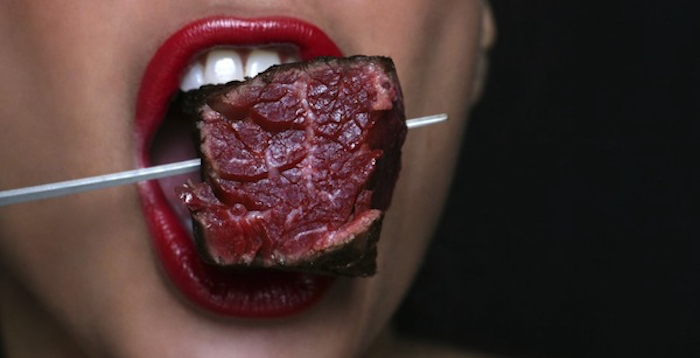Who Cheats and Why?
Table of Contents
Back in 2009, Loveology University conducted a study on why people cheat. The study included 1,055 men and women who completed a 12-question Internet survey on cheating designed and analyzed by Dr. Leanna Wolfe, Loveology University’s Director of Research. Participation was voluntary; no financial compensation was offered. Relative to recent random sample surveys on cheating, our survey attracted a very large percentage of people who had participated in the cheating triangle (being a cheater, cheated upon and/or a secret lover.)
The Results?
Random sample surveys report about 22% of married men and 14% of married women cheat while 67% of our male respondents and 59% of our female respondents who were either partnered or married report having cheated. Ultimately our survey provides a look into the beliefs and practices of cheaters and their secret lovers.
Most Significant Findings Included
• Females are most likely to cheat when they are younger (24-45) and males are most likely to cheat when they are older (36-55).
• Males are more likely to cheat and females are more likely to report being cheated on.
• 72% of people who cheat have been cheated on.
• Younger cheaters (18-35) are most likely to cheat for attention.
• Cheaters over 36 are most likely to cheat in pursuit of sexual variety.
• Males seek the satisfaction of sexual desires and fantasies through cheating, while older females (over 56), especially, cheat for companionship.
• Males enjoy their cheating experiences more than females do; females often feel guilty and concerned about the man’s spouse/partner.
• Older males (over 56) are most likely to consider a sexless marriage (54%) and a spouse’s inability to have sex for medical reasons (43%) acceptable reasons for cheating.
• Females, who have been cheated on, are more troubled by activities that engender an emotional connection than males who have been cheated on.
• Males and those over 36 are most likely to regard cheating as a means to feel more alive.
• Excitement is more important to cheating males (58%) than cheating females (44%).
• Females and those under 35 are most likely to believe that people cheat because they can get away with it.
• The majority of cheaters between 18-23 (54.4%) and females (52.2%) contend that there are no acceptable reasons for cheating
The Loveologist Guide to Understanding Cheating
There are many different types of cheating from a quickie one night stand, emotional
phone or cyber-cheating, and a secret romance or compulsive sex addiction, but all of them provide the excitement of new sexual heights that result in greater self-confidence
for the cheater. All the different types of cheating are based upon “Fear” or “Ego.”
The Fear Based Cheater
Fear based cheaters cheat due to underlying emotions of fear. These include:
1 – Fear of Rejection
This cheater may be in love with their partner, but cheats because they need approval from others to drive their sexual desires. One partner is not enough for them emotionally, so they constantly flirt and put themselves into tempting situations that they hope will lead to sex.
2 – Fear of Intimacy
This cheater is so afraid of getting hurt that they won’t allow any feelings of love or attachment. They may say “I love you,” but they don’t mean it and use sex as a justification to avoid love and intimacy.
3 – Fear of Being Trapped
This cheater feels resentful towards their partner for trapping them into a commitment. They cheat with anyone anywhere and often end up hurting everyone.
4 – Fear of Self-Worth
This cheater has such low self-esteem that they don’t believe there is any emotional attachment to their partner, ultimately believing they can find love in all the wrong places.
5 – Fear of Power
This cheater has a fear of losing their power, whether it’s based on fame or fortune, they abuse their power and cheat to make themselves feel superior to others. They feel an entitlement to have sex with whoever they want and deny any wrong doing even when caught.
The Ego Based Cheater
Virtually every successful person has a strong ego that’s fed by his or her success and
they are constantly approached by attractive people willing to have sex with them. The
temptation becomes so great that it can be surprising when such men and women
DON’T act on their ego impulses at least once.
6 – Ego of Success
This cheater uses their success and power to seduce lovers whether it is a celebrity or CEO of a company, he or she often feels entitled to have sex. They know that their position is a natural aphrodisiac so there are always plenty of willing volunteers. Success doesn’t always breed cheaters, but there are many who will take advantage without any feelings of guilt.
7 – Ego of Appearance
This cheater needs to feel attractive and hunts for lovers who will stroke and feed their physical appearance ego. When the opportunity does arise, the thrill of acceptance is difficult for them to resist. They stay with a lover as long as their egos keep swelling and often have a stable of lovers.
8 – Ego of Diversity
This cheater wants to have sex with as many people as possible as long as it’s more sex, different sex, new sex with a wide variety of partners. Every time they bed a new conquest, it boosts their ego and many of them actually keep a score card, take pictures or videos. When they need an ego boost, they can look at their memorabilia or go hunting.
9 – Ego of Opportunity
This cheater is spontaneous and wants to try new sexual activities their partner refuses. Their ego swells every time they get to live out a new fantasy and their attitude is that what their partner doesn’t know won’t hurt them.
10 – Ego of Love
This cheater needs to feel like they are loved emotionally even more than being physically or sexually irresistible. Their ego is fragile and even when they have a loving partner; it’s not enough for them to be loved by one person, but many. In their mind, this is what gives this cheater value.
Conclusion: Why Do People Cheat?
The rationale behind the different types of cheating happens because the cheater has a
personal coping pattern of dealing with their own shortcomings. The cheater’s behavior
has nothing to do with their partner, but the good news is that cheaters can change, but
only if and when they are ready.
































